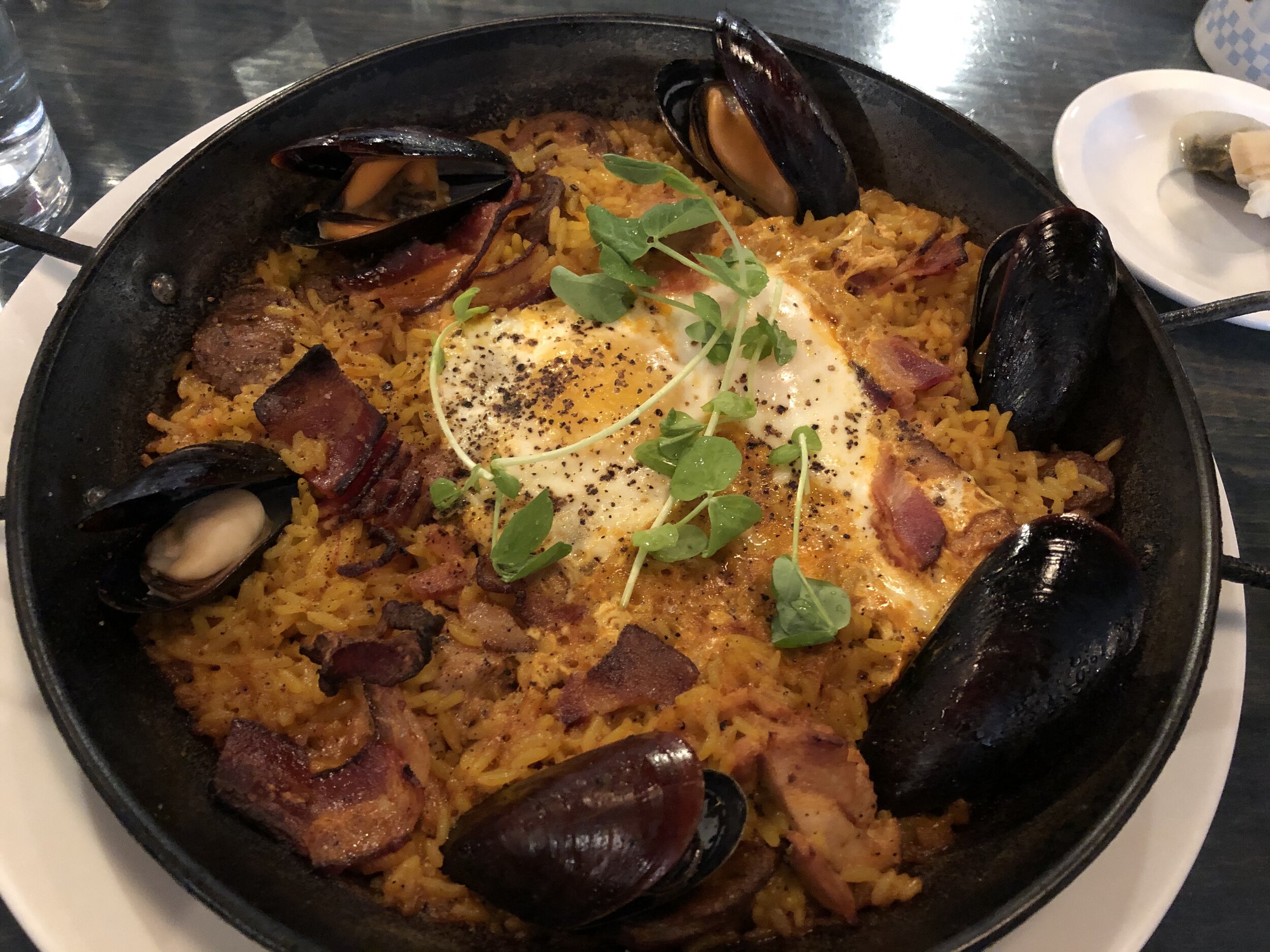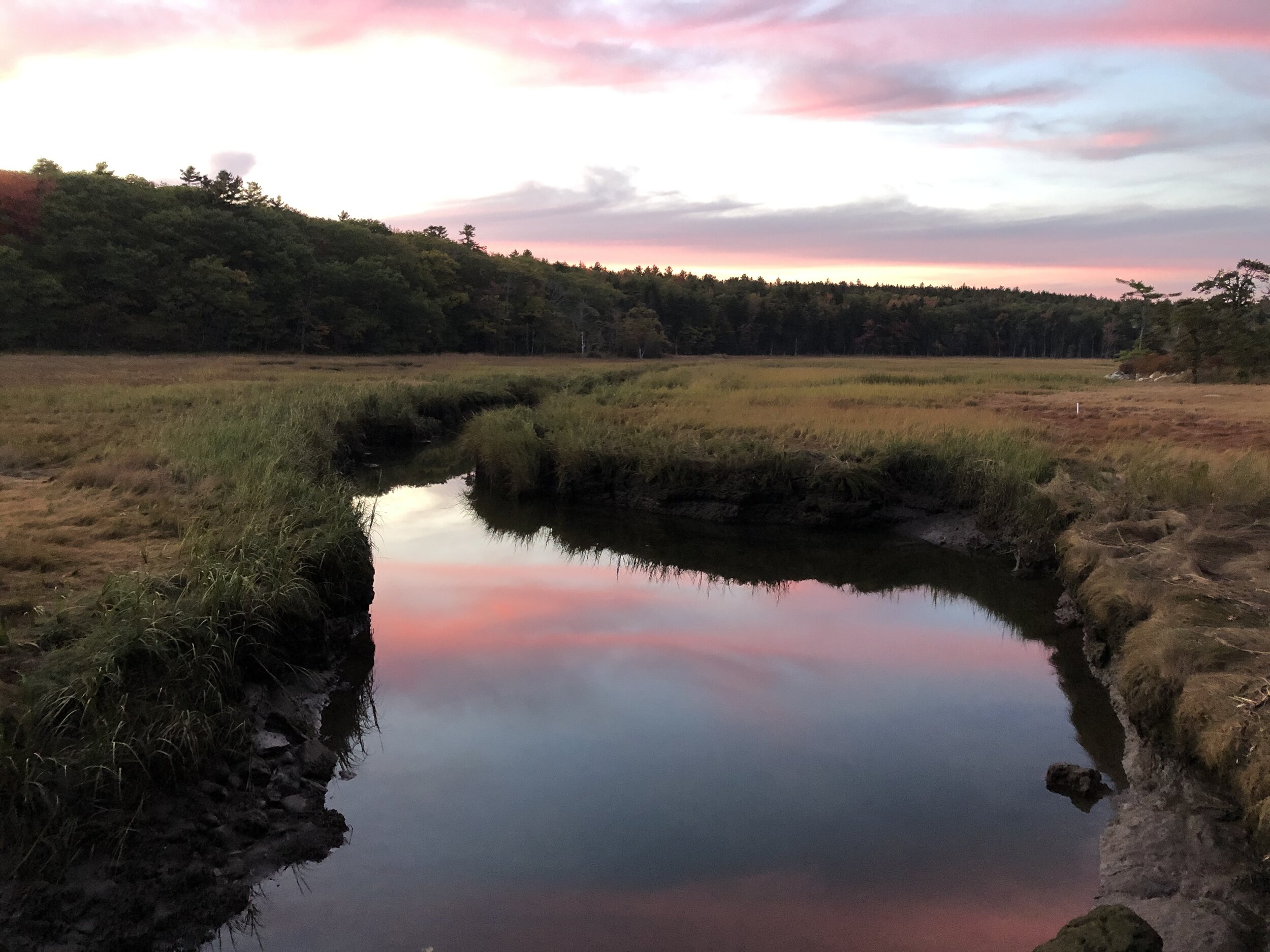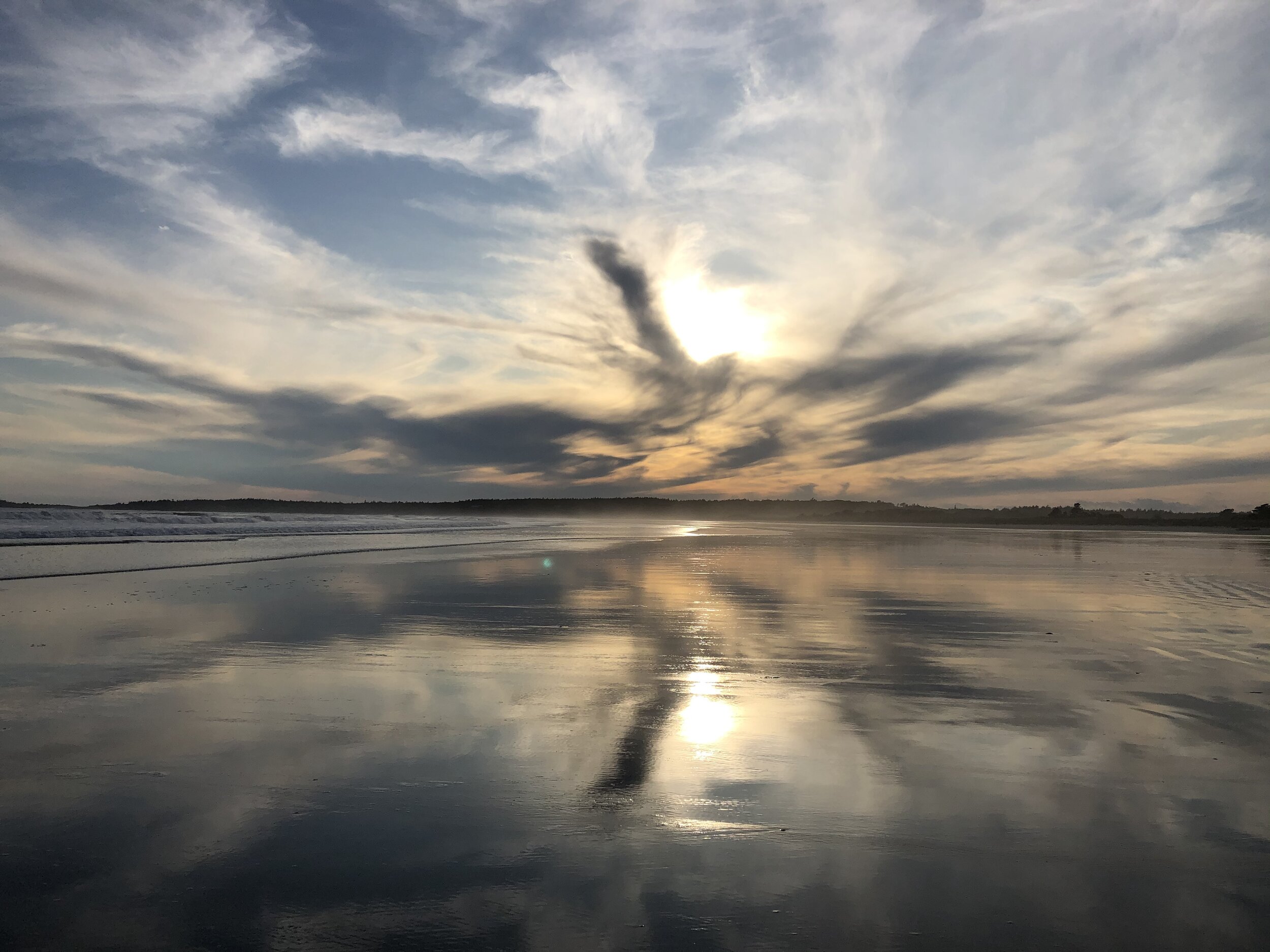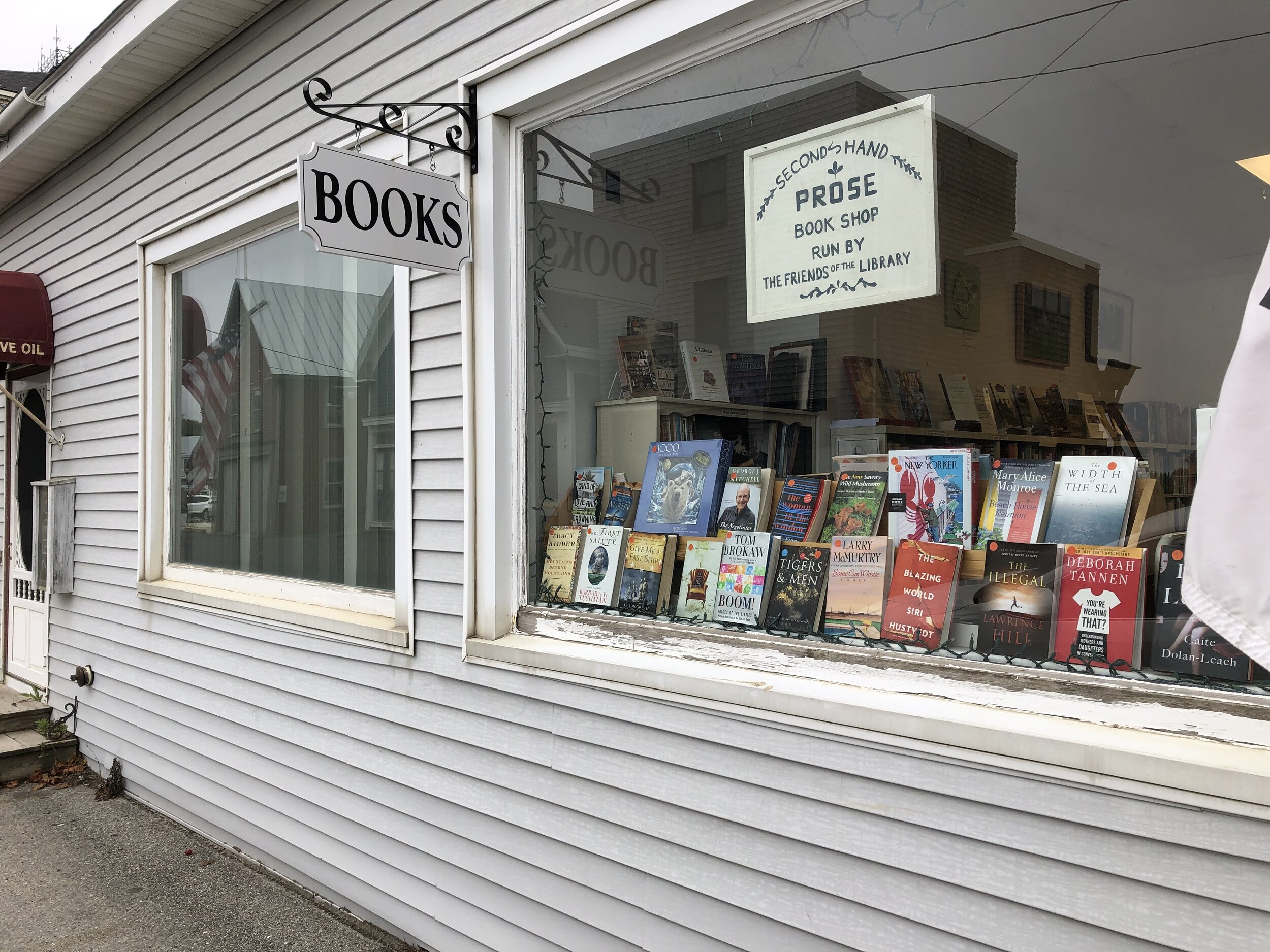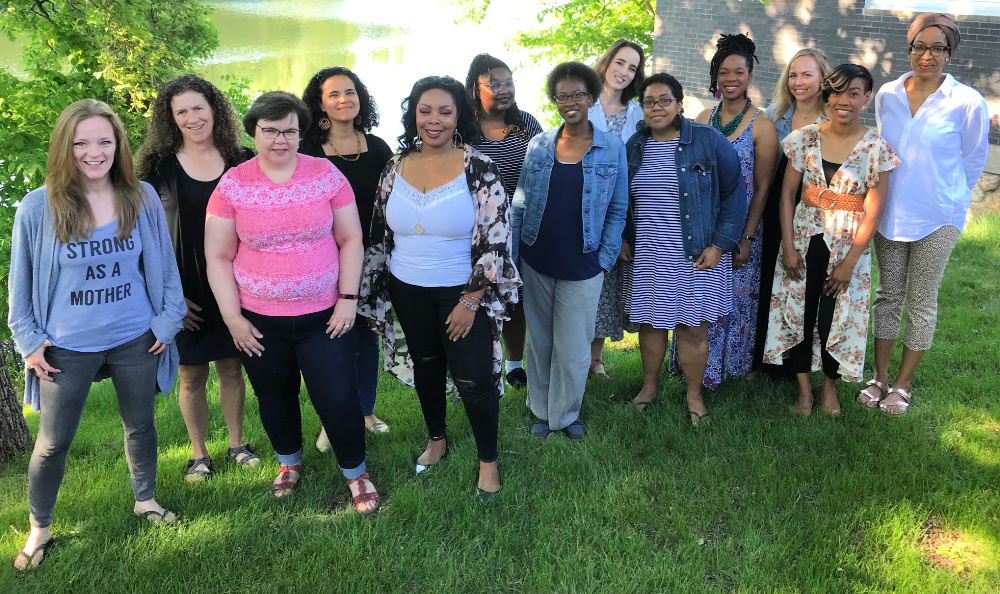A letter from Maine
Today is my mom’s birthday. I’m spending it with my sister in Maine, but we did talk on the phone today with the dear woman who gave us life. My mom is currently a Methodist pastor, but she has also worked as a neonatal nurse and a lactation consultant. She has taught me, through her life, to care deeply. When I was growing up, she often told me about the essays she wrote in her head. She became a pastor at the age of 60 and her weekly sermons are her opportunities to write and share. Her head-essays inspired me to make time to write.
A year ago, I thought I might go to seminary, so I bought a plane ticket for an open-house to a low residency program that caught my interest. Then, I got terribly sick with the flu the week I planned on travelling. I was able to get a doctor’s note to cancel the flight and hold on to the credit. As the year progressed, I decided to let that particular idea sit on the back burner, but I still had a plane ticket. My sister, Coretta, convinced me to come to her house in mid-coast Maine for a week-long writing retreat. It was not a hard sell.
My flight landed Sunday at noon. Coretta treated me to seafood paella at Local 188 in Portland, a hike to a magical hidden beach near Papum Beach, Oysters and ribs at Primo in Rockland and a ferry ride to Vinalhaven. I found a copy of Kiese Laymon’s novel, Long Division, at the island’s only used book store. Southern writers have a long reach!
It’s Wednesday, and I leave next Monday. I’ve written a poem, talked with an editor to start work on a piece that will come out next summer, redesigned my website and worked on some other projects that I am very excited about but not quite ready to share. I’ve also done sticker books, yoga and a dance party with my niece, Gina, who just turned seven. She even let me French braid her hair. It’s the first time I’ve been able to really focus on being her auntie without my own children vying for attention. It makes my heart swell and ache to just sit beside this little person on the couch and be her aunt.
Atatiana Jefferson was just sitting on the couch, being an aunt. She was playing video games with her eight year old nephew, the door left ajar to let in the cool autumn air, when she was shot by a Fort Worth police officer. My heart aches for her family and for our nation.
I came here to write, so that is what I will do, wrapping all the beauty and pain into words that I hope might bring some healing.
My sister had a cucumber that she got from a friend’s garden and she wanted to throw out because the skin was so bitter it made your mouth pucker. I put it in a jar with some hot pepper flakes, salt, white vinegar, a clove of garlic, a bay leaf, peppercorns and dill. We let it sit for a day. It got better, delicious, even. Maybe our bitterness needs some good company, salty tears, and time. Things are bad. We have a choice to see how to make things around us a little better and to not let the ugly in the world ruin us.
I’ve had a few things published in the past couple months so I wanted to share that as well:
Everyone Carries” Fourth Genre fall 2019. I wrote this essay in response to a piece called “Still Life with Guns,” Fourth Genre 2018. Last January, my friend Patrice Gopo invited me to take an online writing workshop with Lisa Ohlen Harris. Lisa is a wonderful teacher. We read “Still Life with Guns,” its a strong essay. But I was so surprised and agitated that the author grew up across the river from me in Northern Virginia around the same time that I was growing up in Washington, DC when it was known as the “murder capital of the world” but it seemed as though we came from entirely different worlds. My friend DeShauna had recently sent me a Spotify mix a friend of hers curated and called “Women’s Retreat” and Kendrick Lamar’s Sing About Me, Dying of Thirst and Alice Smith Shot were on heavy rotation as I wrote. I shared the piece with the class and Lisa suggested that I offer it to Fourth Genre. It was accepted! It is only available in print, but I hope you can read it. Michael texted me a photo of copy of my author copies which are waiting patiently at home in Georgia. I can’t wait to get home and read the whole issue!
“Walking without Sidewalks” About Place Journal: Infinite Country, October 2019. This essay gives a glimpse of homegrown rural activism. I wrote about the day of the first Women’s March in 2017 when I walked in the pouring rain with a dozen friends to the center of our tiny town.
I wrote about one of my favorite children’s books authors Patricia Polacco and her book Chicken Sunday for The Christian Century Books Issue. This also includes a review of my friend Britney Winn Lee’s new book The Boy with Big, Big Feelings She read that poem at our little airport poetry reading in April 2018 and now its a book that you can buy and read to your kids!
I published my interview with the author Jemar Tisby on the Christian Century Website. Its hard to condense a one hour conversation into a few hundred words. Listen to the whole interview here:
I’ve also done some work in our town with my friend Jennifer Drago Smith at the New Neighbor’s Network. With the support of a grant from the Georgia Council on Disabilities we hosted a couple of community conversations about immigration and citizenship. I wrote about them for our local paper, The Madison County Journal.
As always, thanks so much for reading and doing what you can to bring some joy and healing into your heart and the deeply flawed and beautiful world around you.
